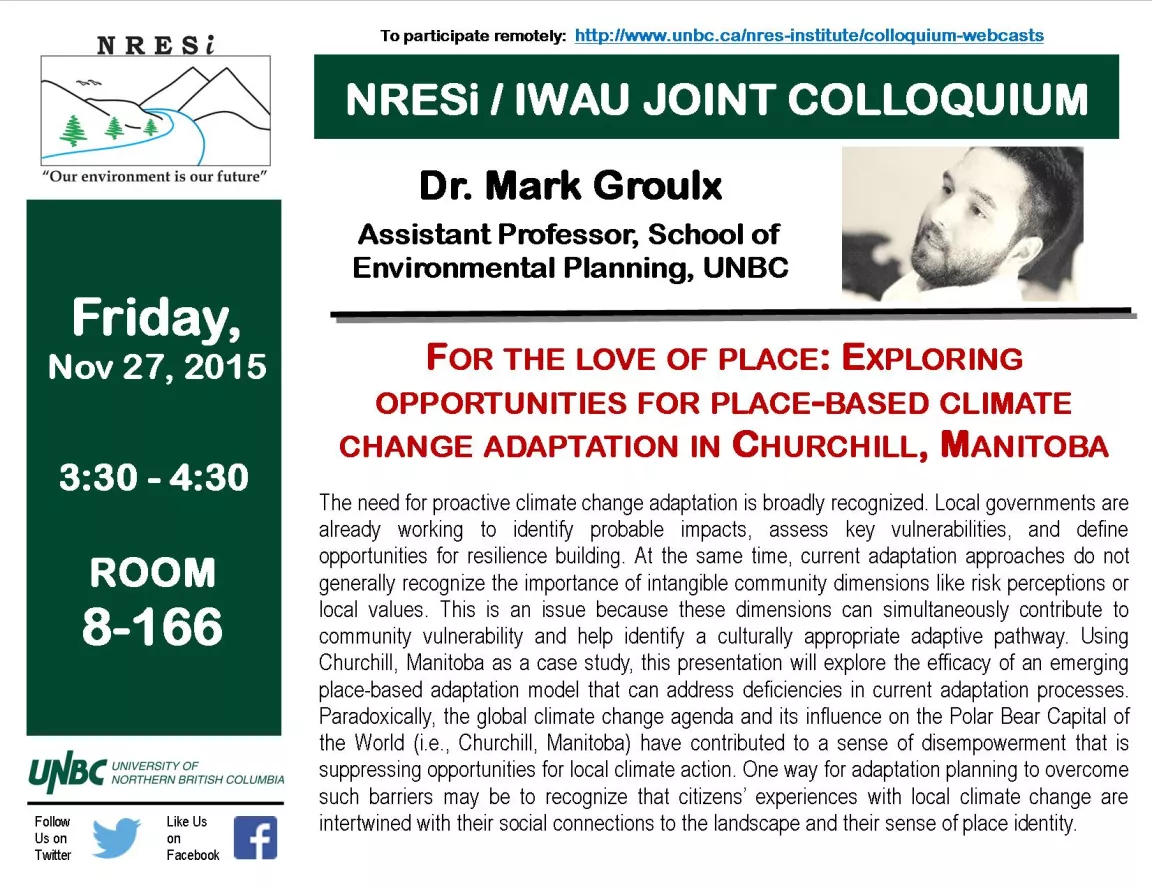NRESi Colloquium: Dr. Mark Groulx, Lecturer in Environmental Planning, UNBC

The need for proactive climate change adaptation is broadly recognized. Local governments are already working to identify probable impacts, assess key vulnerabilities, and define opportunities for resilience building. At the same time, current adaptation approaches do not generally recognize the importance of intangible community dimensions like risk perceptions or local values. This is an issue because these dimensions can simultaneously contribute to community vulnerability and help identify a culturally appropriate adaptive pathway. Using Churchill, Manitoba as a case study, this presentation will explore the efficacy of an emerging place-based adaptation model that can address deficiencies in current adaptation processes. Paradoxically, the global climate change agenda and its influence on the Polar Bear Capital of the World (i.e., Churchill, Manitoba) have contributed to a sense of disempowerment that is suppressing opportunities for local climate action. One way for adaptation planning to overcome such barriers may be to recognize that citizens’ experiences with local climate change are intertwined with their social connections to the landscape and their sense of place identity.
The Natural Resources & Environmental Studies Institute (NRESi) at UNBC hosts a weekly lecture series at the Prince George campus. Anyone from the university or wider community with interest in the topic area is welcome to attend. Presentations are also made available to remote participants through Livestream or Blackboard Elluminate. More information will be posted about the presentation as it becomes available.
Past NRESi colloquia and special lectures can be viewed on our video archive, available here.
Contact Information
Darwyn Coxson
Director, Natural Resources & Environmental Studies Institute
Email: Darwyn.Coxson@unbc.ca
Phone: 250-960-6646